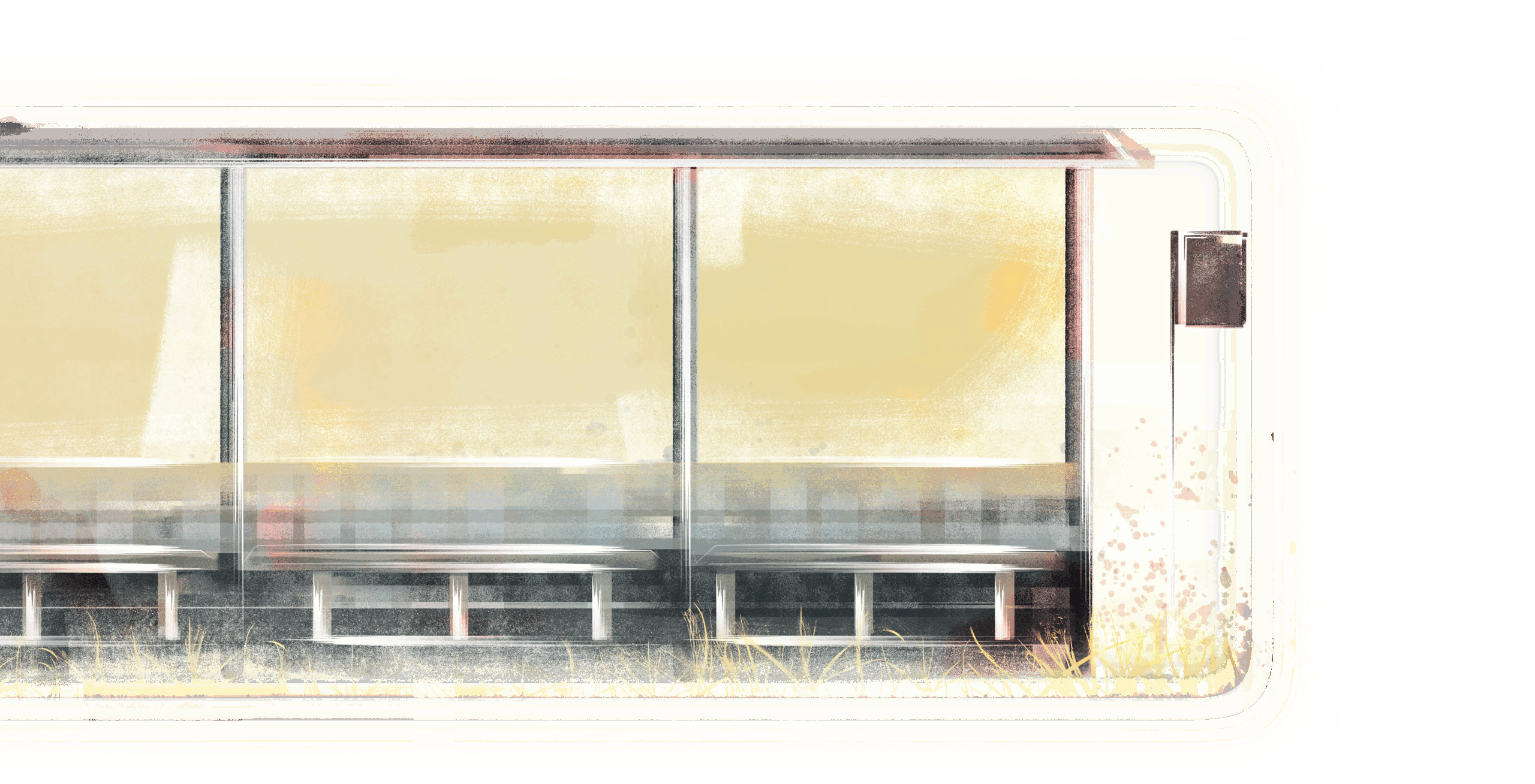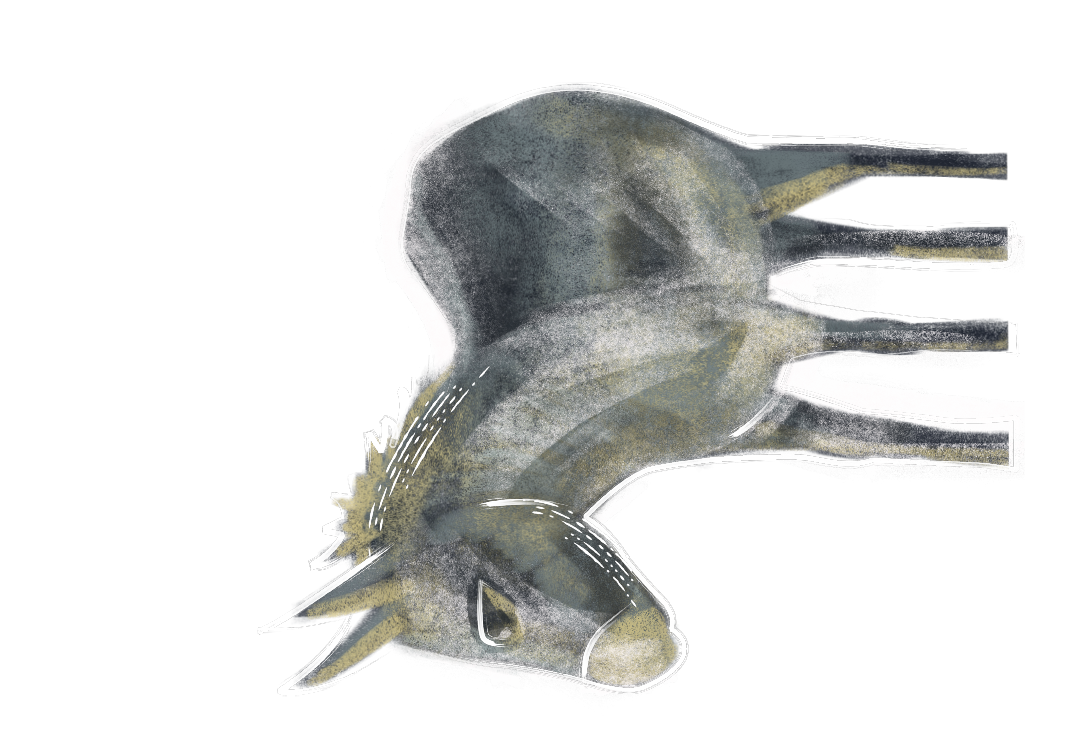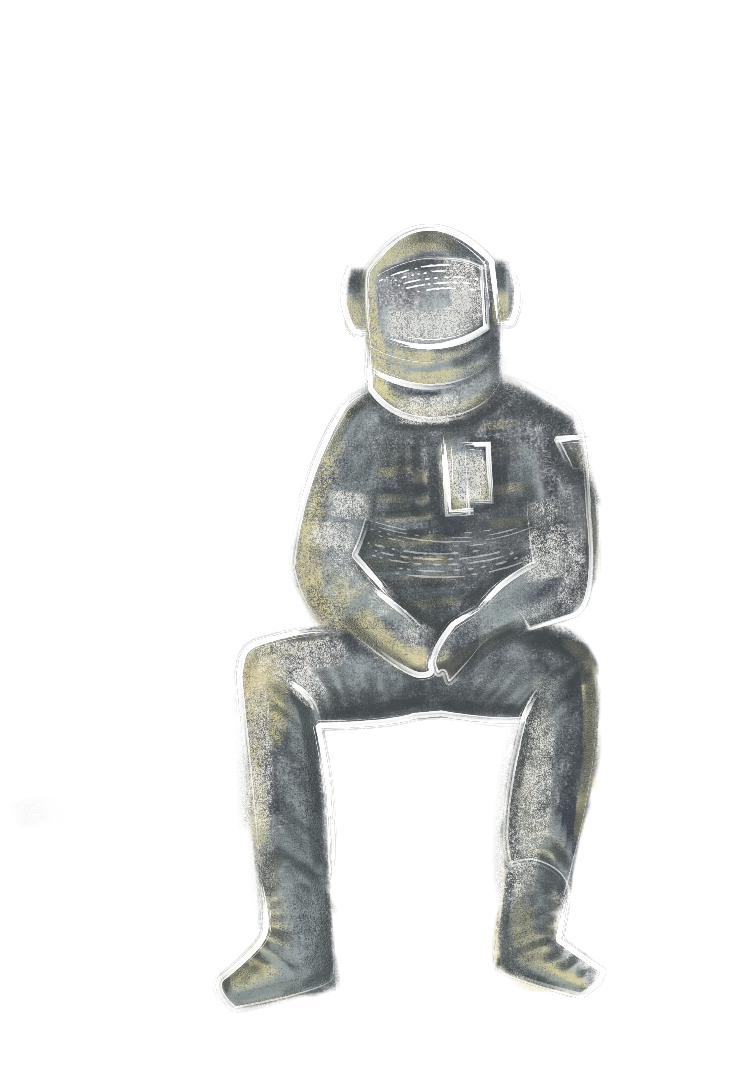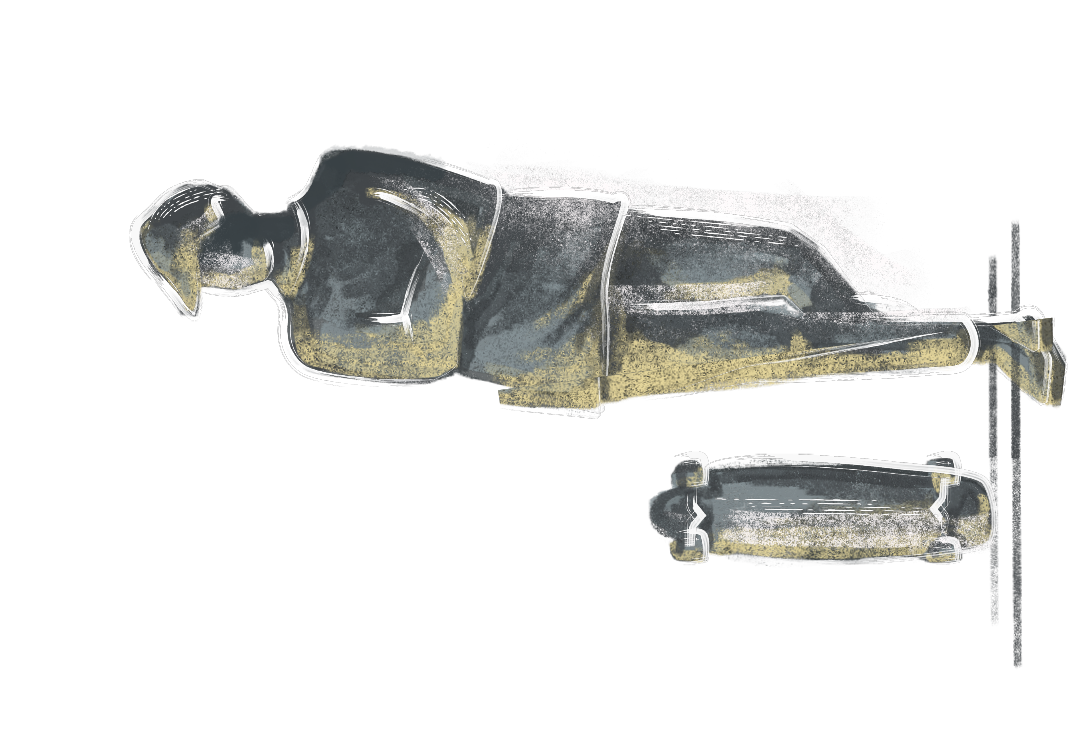

Everyday Value
Madelyn Yoo
I enter the familiar, pine-scented office of my school occupational therapist, Helen. She’s in her 50s, wears wide purple glasses, and carries the aura of wisdom of most people who grew up during the uprising.
“Welcome, honey,“ her voice is like warm maple syrup. “I can’t wait to hear about your water management rotation.”
“It’s been a long six weeks…But definitely not as long as my architecture one.” I’m honest with Helen, there’s nothing to gain from pretending with her. Her goal is the same as mine: for me to find work that best suits my skills, interests, and of course, what society needs. Since I started high school, we’ve met every week through six rotations: nursing, teaching, law, carpentry, architecture, and now water management.
“Tell me about what made it feel long.”
I sit down across from Helen, sinking into the chair that may as well have my underside imprinted in it. “Well, there’s so much old infrastructure that needs updating but slow movement when it comes to trying to organize any action…I thought that we’d be much further along by now since, you know, everything that happened, and now that we are in a better place as a country that there would be more change…especially for something as basic as water…”
Helen nodded, her eyes seeming to glisten in acknowledgement of my emerging adulthood.
“That’s very insightful of you,” she finally said. “It’s not too long ago that young people were paralyzed by these kinds of problems, unsure of where they fit in the big picture. That where all the occupational therapy comes in to help everyone understand the ways to contribute to the betterment of society in a way that’s most fulfilling to them.”
I shift in my chair and look up past Helen with no focus on anything in particular.
“I don’t think water management is for me though…I’m not really sure what to do. I’ve already done six rotations and nothing feels right…Sometimes, when I think too long about my future, I start to feel like my chest is closing in on itself and that my heart is going to stop.” I can feel her gaze attempt to comfort me.
“I know we’ve talked about this before and some ideas for when that feeling of anxiety happens. How has that been going?”
“Um…” I swallow the bubble of air caught in my throat. “I’ll take deep breaths or get my mind off things with a game or something, but it doesn’t mean that the feeling won’t come back later…I just question whether or not I have anything to contribute to society at all…” My eyes drift to a section of the floor where a rug is starting to unravel. If I look at Helen, I know I won’t be able to stop the tears.
“Oh, honey. I see how much this is affecting you. Let’s take a break from rotation-talk. Give your worried mind a rest.”
She walks over to the closet in the corner of the small office and pulls out intricate coloring pages, mancala, and a jigsaw puzzle. “Pick your poison.”
I smile. “Mancala.” The best part of my time with Helen is getting to do things, not just talking about them.
“You got it.” She hands me the wooden rectangle and shuffles the papers and puzzle back into the closet.
Desperate for conversation about anything other than myself, I blurt out the very question that’s been whittling at me for months, “Can you tell me about life before the uprising?”
Helen paused, as if surprised I’d ask such a question, but shortly walked back to our table space to start the game. “I can, but while we’re playing. This is still your session after all,” she said, smiling with her characteristic warmth. “You start.
I pick up the first pocket of marbles as she sits down across from me and pauses, taking a deep breath before speaking. “Before the uprising the world reached a point where life, both human and nonhuman, was no longer valued. Wildlife, ecosystems, neighborhoods, any place that was not considered financially profitable was destroyed. All the while, this loss of life was hidden by the media, which successfully distracted us from the hum of existential dread for a long, long time. There was no sense of connection to anyone but oneself and one’s story.”
The clink of marbles drop into each pocket as I finish my turn with a lone stone at the center of the perfect half-sphere carved into the wood plank.
“That sounds lonely.”
“It was…People were so focused on making money to survive that they didn’t do much else other than work, shop, and watch their screens. They became trapped in this cycle with work at the center. The work week used to be 5 days a week for 40 hours.”
My jaw drops to the floor. I think back to my rotations and their five hour-day schedules, both for student shadows and full time employees. On a typical day, I’d complete my rotation, take a walk around the neighborhood, eat lunch with my friends, read my sci-fi novel of the week, make dinner with my parents, and run a few puzzles. The thought of half of that being cut out to work longer hours feels criminal.
“I can see how people would want to start an uprising.”
Helen’s turn is much longer than mine and I watch her stores grow full with marbles. She knows this game well, which makes it all the more fun.
“That’s very empathetic of you. It’s around the emergence of the uprising that OT really started to gain momentum. People started to feel like they were cornered into boxes of existence and were drawn to OT’s focus on holism, the idea that you are more than just one thing (like your job), and that doing things, especially with other people, is the true heart of well-being. The work of some brave OTs, along with a wave of public support, helped the country re-prioritize interconnected life…And here we are today. Me and you playing mancala, sharing thoughts and stories.” She smiled, the lines on her face proudly displaying the hand-carved beauty of reclaimed time, reclaimed life.


“It’s ironic that OT stands for occupational therapy, which sounds like therapy for job-related work even though it’s so much more…”
“Yes, that’s been a challenge for the profession since its inception but post-uprising we decided to embrace it, lean into the most common understanding so we can disentangle the belief of work and value at its root…That reminds me. Earlier you mentioned feeling unsure about what you have to contribute to society. Tell me, outside of rotations, in what ways do you create value for others around you, like your friends and family for example?”
There are only 14 marbles left, and I scan the board to see where I can make my best move. I like to think before I answer. I select the three marbles two pockets away from my store, dropping two into pockets and the last into my store. I get to go again.
“I know that I’m a reliable friend. I always meet up with my friends for lunch at the same place and time, but I don’t hold it against them if they’re late or can’t that day…I guess I’m reliable at home too since I pick up my younger sister from soccer practice every day…”
I select a pocket with five marbles. Only one ends up in my store.
I see. What effect do you think these things have on your friends and your sister?” Helen looks at me intently, although it is her turn, and I know she genuinely cares.
“I’m not really sure…Maybe a sense of comfort since they know they can count on me…”
“I would think so. I’d even say safety, especially with getting your sister home in the evenings.”
I nod. With muscle memory of routine, I’d never thought of it that way.
“What would you think about noticing parallels between comfort or safety and your rotation experiences this week?”
“I think I can do that.” I already have some ideas bubbling in mind.
“Great. We can talk about what you think of at our next session. Now what do you say we finish this game?”
I smile. “I’d like that.”
Helen reaches for a pocket of marbles, and as I watch her expertly distribute the stones across the board, encouraging my game when she could have swiftly beat me, I’m overcome by what she shared, by the thought of the world being any other way. How could it?
